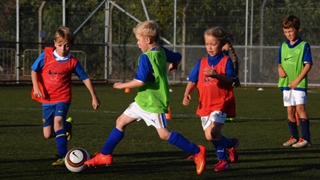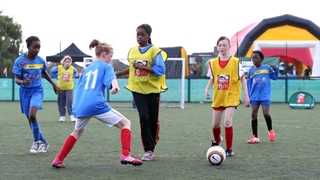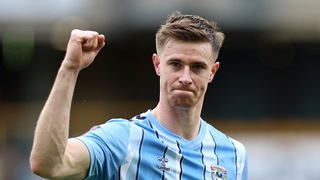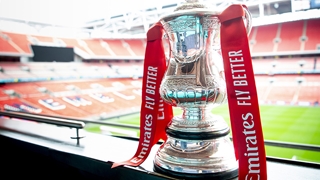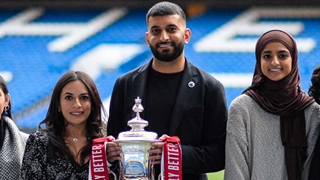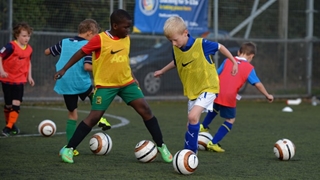
Info 4 U18's
Football is about having fun, being with friends, making new ones, playing games, trying new skills and being part of a team, if you want.
It should be fun to do all of these things - having fun is what is important.
Sometimes adults get it wrong and do things which hurt, frighten or worry children. It doesn't happen often in football, but it does happen.
If a child is worried about the way an adult is behaving towards them, they feel threatened or frightened it's important they know who to tell and how to get help.
What they are experiencing might be child abuse.
What is Child Abuse?
Child abuse is what happens when a person, or group of people, harm a child or young person under the age of 18. Often the adult - 'abuser' - knows the child well. Child abuse can happen anywhere. There are five types of child abuse:
Neglect - is not being looked after properly, not being fed enough or having warm clothes or a place to sleep or needing medication when you are ill and not getting it
Physical abuse - is being hit, shaken, thrown, poisoned, burned or being given harmful drugs or alcohol
Sexual abuse - is being touched in a way that feels wrong, being forced or encouraged to have sex or made to touch an adult sexually even if you don't understand what is happening or being shown sexual films or pictures
Emotional abuse - is being bullied or threatened, not being loved but made to feel stupid and worthless.
Bullying - is being hit or kicked, called names, being left out, being threatened, having things stolen, being made to give someone money, being shouted and laughed at or being made to feel stupid/different. It can happen via text or social networking sites like Facebook or Bebo.
Abuse is never ok. It's not your fault and there are people who can help.
Who can help?
If you are being abused or have been in the past it's important to tell an adult you trust. This isn't easy but keeping quiet isn't the answer - you need someone to help. You might be worried about what might happen. You could be worried about any of these things:
- You may have been told to keep quiet, that no-one would believe you
- You might have been threatened or they said they would hurt your family
- You might have been told you would not be allowed to play football again
- You might be worried because they are an important person in your club/football team and everyone looks up to them
- You might be worried about what your mum and dad will think
- You might feel guilty that you didn't stop it happening
- You might think it will just stop
Keeping quiet isn't the answer - by telling someone you can stop the abuse. Abuse is never ok. It's not your fault and there are people who can help.
Know Your Rights
If you take part in football you have the right to have fun and stay safe. Your coaches are there to help you learn safely and enjoy football. This means respecting you as a person and as a player and:
- being a good role model - leading by example
- not speaking to you in a way that makes you feel uncomfortable
- not bullying you to make you do things
- treating you as an individual
- thinking about you and your team-mates and not just about winning or scoring goals
- making sure the pitch/playing area and equipment are safe for you to use
- having the right qualifications to coach
- making football fun!
Remember it's your right to enjoy your football - don't let anyone else spoil it. If you are worried about the way a coach, team manager, referee or anyone involved in football is behaving towards you, there are people you can talk to If your coach needs to have physical contact to correct a technique or your positioning, they need to explain this to you and check you are ok with this. If you are not comfortable with physical contact, you have the right to say no.
Getting Help
Tell an adult you trust as soon as possible. This could be your mum or dad or someone else in your family; an adult at your club; a teacher; your doctor or school nurse or school counsellor. Think of who you trust and speak to them now; remember it needs to be an adult. Or call the NSPCC helpline on 0808 800 5000. It’s free unless you use a mobile, available all day, every day and they have trained professionals who know what to do. If you have hearing difficulties you can use their textphone by calling 0800 056 0566 Your club has a Club Welfare Officer, they will also know what to do find out who they are and speak to them. There are also lots of websites that give advice you might want to email them for advice. www.childline.org.uk
ChildLine offers lots of ways you can contact them:
- You can send an e-mail
- Get support on the message boards
- Send your questions to ‘Ask Sam’
- Or remember you can call them on 0800 1111
Kidscape
Visit www.kidscape.org.uk/childrenteens for advice on:
- Who gets bullied?
- What can I do?
- Who can I tell?
- What if...?
- Online safety\cyberbullying
Think you know
If you would like to know more about:
- chat rooms
- mobiles
- cyber bullying
- gaming
- will I get into trouble?
- customising your profile
- uploading films clips
- IM
- sharing files
- ‘sexting’
- harassment
- what can go wrong?
- social networking
Then just visit thinkuknow they have a really cool site developed by children and young people that gives advice on all the types of things you want to know about. There are specific sections for 5-7, 8-10 and 11-16-year-olds. As well as advice you can watch films, play games visit the TUK cyber café or get involved with one of their polls. Don’t just take our word for it – go and take a look…


